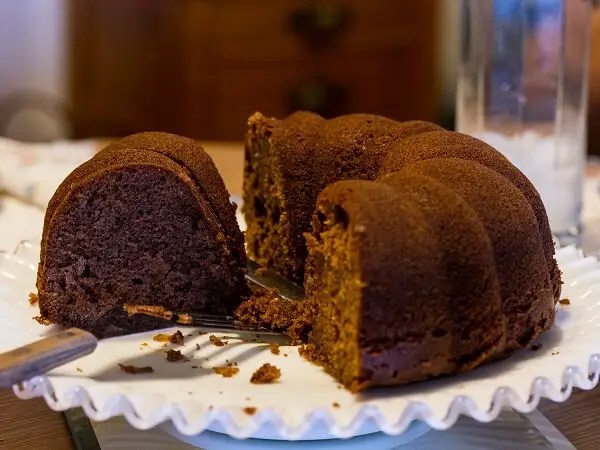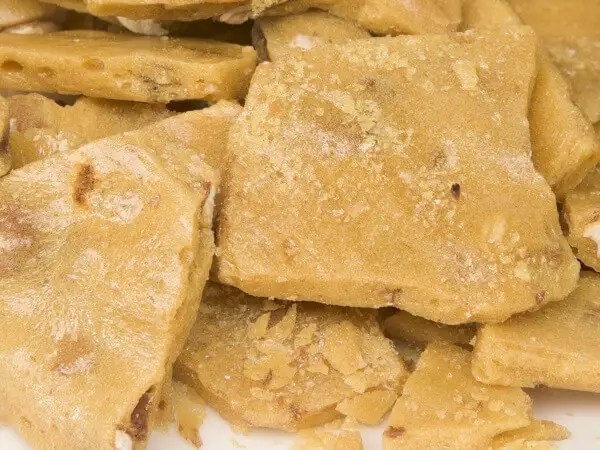This post may contain affiliate links.* As an Amazon Associate I earn from qualifying purchases. Click here to read our affiliate policy.
Estimated reading time: 7 minutes
Did you know that you might have a bountiful and nutritious food source right at your feet this fall? Acorns are much more than something to rake up with your leaves and deposit into your compost pile.
With a little preparation and know-how, you can eat them as you would other nuts, you can use them to make oil, and you can grind them into flour to make a variety of foods.
Article continues below.
For many centuries, cultures from Asia, Europe, and the Americas have gathered and consumed acorns. They are the seeds of oak trees, and acorn varieties are readily available throughout much of the world. As you might expect, different types of oak trees produce different kinds of acorns.
Acorns contain healthy fats, carbohydrates, and protein. They also contain essential amino acids, trace minerals, and Vitamins A and C. Nutritional levels can vary from species to species and so can their level of tannins.
Tannins are what give raw acorns their bitter taste. However, it is possible to remove or greatly reduce the tannin level in acorns through a simple leaching process.
Want to save this post for later? Click Here to Pin It On Pinterest!
Shelling and Leaching
The first step to removing the tannins is to gather only ripe, brown acorns. Avoid acorns that appear green or black or show signs of mildew or rotting.
Next, remove the caps and boil the acorns for ten minutes. Strain out the resulting brown water and boil the acorns once again in fresh water. Repeat this process several times until the water looks clear. Then you can shell the acorns.
Another tannin removal method is a flushing procedure that was used by Native Americans in streams and rivers. Remove the caps before placing acorns inside a mesh bag. Then, place the bag under running water for several hours. Frequently remove any water from the bag and continue this rinsing process about four times or so until the water is clear.
Want to start a homestead but not sure how?
Click Here to get a FREE book, "How To Homestead No Matter Where You Live."
After leaching, dry the acorn pieces in single layers on cookie sheets out in the sun (be sure to protect them from animals!) or in a 200-degree oven. You could also use a dehydrator on the low setting.
To make acorn flour, grind your leached acorns in a blender or food processor. Next, dry this meal in a warm oven for a few minutes, or let it air dry for two to three hours. Then grind the meal in the blender or food processor again.
Now you can use your acorn flour in many different recipes. Keep in mind that acorn flour does not contain gluten so it does not bind in the same way as regular flour (wheat, rice, corn or oat). In most acorn baking recipes, you will use half acorn flour and half regular flour so that your food product will hold together well.
To help get you started, here are ten recipes that use acorns.
1. Acorn Bread
This recipe is for a sweet and tasty bread that is not too crumbly. It is a perfect addition to a fall brunch or a Thanksgiving-time treat. Here’s a great acorn bread recipe.
2. Acorn Cookies
Cookies are one of the few goods you can bake with all acorn flour. These crumbly but delicious cookies combine the nutty, sweet taste of acorns with the warm and spicy taste of ginger. Here’s my favorite acorn cookie recipe.
3. Acorn Cake
This delicious and attractive Bundt cake recipe uses acorn flour as well as cinnamon, apple sauce, and coconut oil. Here’s a delicious acorn cake recipe.
4. Acorn Porridge
Flavorful and satisfying on a cool morning, this porridge recipe that incorporates the distinctive taste of acorns. Here’s an acorn porridge recipe.
5. Acorn Pancakes
These pancakes practically scream “autumn.” These pancakes will appear a bit darker than what they are used to, but they taste yummy. Here’s a tasty acorn pancakes recipe.
6. Acorn Burgers
If are a vegetarian or have a vegetarian in your family, you may be interested in this burger substitute. You guessed it; it uses acorns! Here’s the best acorn burger recipe.
7. Acorn Tortillas
You can substitute acorn meal for cornmeal in tortillas using this recipe. Here’s the acorn tortillas recipe, and here is a video that shows how to do it.
8. Acorn Soup
The taste of acorns and the flavors of porcini mushrooms combine well in this smooth-tasting soup. Add a spoonful of sour cream or creme fraiche on top, serve and enjoy. Here’s a yummy acorn soup recipe.
Want to start a homestead but not sure how?
Click Here to get a FREE book, "How To Homestead No Matter Where You Live."
9. Acorn Brittle
This recipe is very similar to the standard recipe for peanut brittle; you just use acorns instead of peanuts! Here’s the recipe.
10. Acorn Coffee
To make acorn “coffee,” first peel some ripe, blanched acorns. Then, divide the kernels and place them in an ovenproof dish. Cover the dish and roast the acorns in your oven on low heat. Stir them frequently. When they have roasted, grind the acorns and use them combined with your regular coffee or on their own.
More Ideas
Acorns add a nutty, slightly sweet taste to many dishes and beverages. Some Korean noodle dishes are made of acorn starch, and it is common for Asian grocery markets to sell packaged acorn starch.
Other ways to use blanched acorns in your cooking include:
- Substituting them in recipes that use chickpeas, peanuts or macadamia nuts.
- Sprinkling roasted acorn pieces on a garden salad.
- Making acorn butter instead of peanut or almond butter.
- Adding acorns to stews as you would add potatoes or beans.
Dried acorns can be stored for up to a year. Acorn flour will keep for several months when stored in an airtight container in the refrigerator.
Like this post? Don’t Forget to Pin It On Pinterest!
You May Also Like:
- Acorns: How To Harvest, Process, and Eat Them
- How to Cook with Wild Edibles
- 8 Foods You Can Grind Into Flour (And How)
- 6 Wild Edibles You Can Forage In The Middle Of Winter
- Grandma’s Pancake Recipe: The Best Pancakes EVER!









